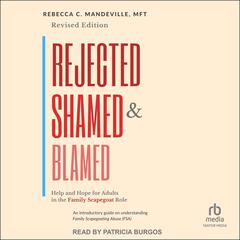 Play Audiobook Sample
Play Audiobook Sample
Notes from the Underground Audiobook
 Play Audiobook Sample
Play Audiobook Sample
Quick Stats About this Audiobook
Total Audiobook Chapters:
Longest Chapter Length:
Shortest Chapter Length:
Average Chapter Length:
Audiobooks by this Author:
Publisher Description
A predecessor to such monumental works as Crime and Punishment and The Brothers Karamazov, Notes from the Underground represents a turning point in Fyodor Dostoevsky's writing toward the more political side. In this work, we follow the unnamed narrator of the story, who, disillusioned by the oppression and corruption of the society in which he lives, withdraws from that society into the underground. This "Underground Man" is one of the first genuine antiheroes in European literature.
The first part of this unusual work is often treated as a philosophical text in its own right; the second part illustrates the theory of the first by means of its own fictional practice. A dark and politically charged novel, Notes from the Underground shows Dostoevsky at his best.
This version of Notes from the Underground is the translation by Constance Garnett.
Download and start listening now!
"OK hmm, now being done with it I wouldn't have read it if I had known what I was getting into, however, I did highlight a ton of what I thought were above average insights in the first half of the book. For me brevity saves most things from damnation; so this easily clears the bar. It's safe to say that knowingly or not we all strive to be the opposite of the "author"/main character. SN: I know it's pre-war but still how/why does he have a servant while at the same time being poverty stricken. Before reading this I planned to never read any of his longer books and while that's still the case I now understand the attraction."
— John (4 out of 5 stars)
Notes from the Underground Listener Reviews
-
" The various philosophies and experiences of the narrator really struck a chord with me. I wish there was more I could read about him! The first section was slightly tedious, but that's only because I was drowsy while reading this portion. An excellent study in philosophy and social/psychological isolation. "
— Kelly, 2/18/2014 -
" I am not enjoying this book and thing until I am in a better mindset will put this on the back burner and return to the library. What a shame - it looked like it had potential, and from such an influential writer. "
— Faye, 2/18/2014 -
" Worth reading at least once. "
— Sujatha, 2/18/2014 -
" I was first introduced to this work when my mentor assigned it to me, along with Plato's Meno, to view the contrasting arguments. In Meno, Plato claims that all men desire what is good for them. In Dostoevsky's _Notes from Underground_, Fyodor argues nearly the opposite. It's a fascinating look at the thought patterns of the depraved and darkened mind. FD was truly the world's greatest psychologist. "
— Megan, 2/12/2014 -
" Oh Dostoyevski! You tiresome cur. As usual, this ends up being an insightful read regarding the human experience, should you lack any real moral fiber or sense of integrity. The protagonist is sheepish and trite. Better to read this and be ready to laugh, though you could possibly learn something if you approach it as an anti-thesis on how to be a good person. "
— Daniel, 2/10/2014 -
" If you wonder about the point of view of the people you don't like this is probably one of them. "
— Angelina, 2/9/2014 -
" Did this feel like a long serious episode of Curb Your Enthusiasm to anyone else? "
— Andrewfrom5to7, 2/5/2014 -
" I LOVE THIS STORY!!! Underground Man is a very vivid and real character. Fyodor Dostoyevsky is BRILLIANT, one of the best classic writers of all time. Gotta love the Russians. "
— Kimberly, 2/5/2014 -
" Good psychological portrayal of the anti-hero. "
— Yousef, 2/3/2014 -
" I really didn't see what the big deal was. It was Meh. "
— Ken, 2/1/2014 -
" insightful and poignant in its own way "
— Thomas, 1/29/2014
About Fyodor Dostoevsky
Fyodor Mikhailovich Dostoevsky (1821–1881) was a Russian novelist, journalist, and short-story writer whose psychological penetration into the darkest recesses of the human heart had a profound and universal influence on the twentieth-century novel. He was born in Moscow, the son of a surgeon. Leaving the study of engineering for literature, he published Poor Folk in 1846. As a member of revolutionary circles in St. Petersburg, he was condemned to death in 1849. A last-minute reprieve sent him to Siberia for hard labor. Returning to St. Petersburg in 1859, he worked as a journalist and completed his masterpiece, Crime and Punishment, as well as other works, including The Idiot and The Brothers Karamazov.
About Norman Dietz
Norman Dietz is a writer, voice-over artist, and audiobook narrator. He has won numerous Earphones Awards and was named one of the fifty “Best Voices of the Century” by AudioFile magazine. He and his late wife, Sandra, transformed an abandoned ice-cream parlor into a playhouse, which served “the world’s best hot fudge sundaes” before and after performances. The founder of Theatre in the Works, he lives in Lancaster, Pennsylvania.






































